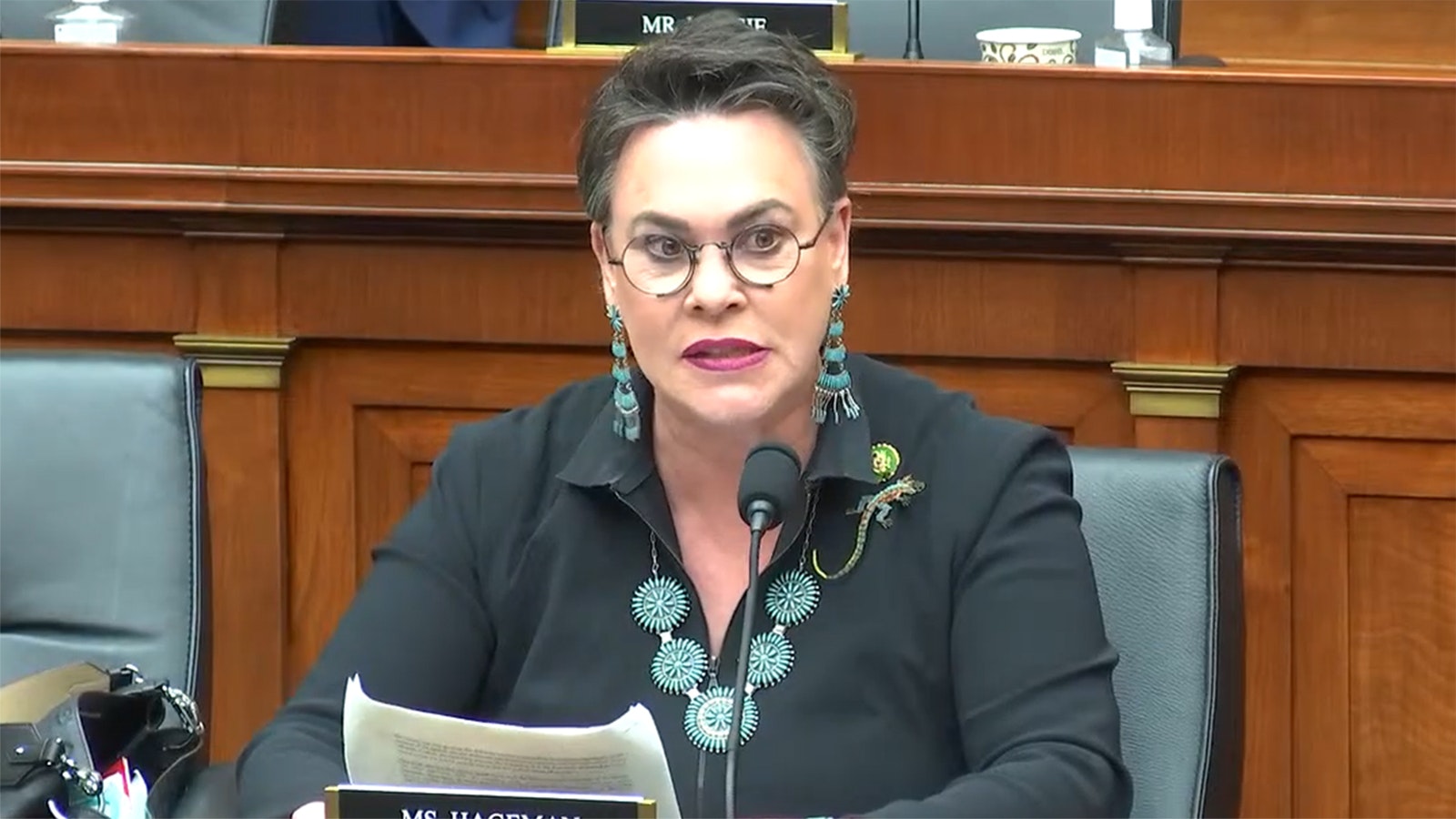An oversight hearing by the U.S. Subcommittee on Energy and Mineral Resources gave U.S. Rep. Harriett Hageman, R-Wyoming, a window to again grill Bureau of Land Management leadership about a policy in which the agency won’t allow oil and gas drilling to proceed on any leases on the lands it manages if those leases are involved in litigation with environmental groups.
This was not a policy ordered by any courts, but allows those groups to maliciously stop oil and gas projects simply by filing lawsuits, whether they have merit or not, Hageman said.
Close Examination
Tuesday’s hearing was held to look specifically at the Biden administration’s mismanagement of the federal onshore oil and gas program. It examined how the president’s actions caused energy prices to increase and threaten the long-term viability of oil production on federal lands.
While President Joe Biden hasn’t entirely kept his campaign promise to end fossil fuels, he has taken numerous actions to that end.
A week after taking office, for example, Biden issued a moratorium on new oil and natural gas leases on public lands and offshore waters, while directing the Department of the Interior to conduct a review of permitting and leasing practices.
“Joe Biden and his administration fully understand the consequences of their policies – and are intentionally driving up the cost of coal, oil and gas in order to make it appear that wind and solar are economically competitive,” Hageman told Cowboy State Daily.
Frivolous Lawsuits
Mike Nedd, deputy director of the Bureau of Land Management, was on the hearing’s first panel.
Hageman questioned Nedd about the bureau’s policy of not issuing applications to drill when leases are involved in litigation by special interest groups. This is not a court-ordered policy, she explained.
“In other words, the BLM is breaking the law,” Hageman said.
Hageman quoted from a letter Gov. Mark Gordon sent in May to BLM Director Tracy Stone Manning referring to what he called a “self-imposed moratorium” that is “extremely concerning and highly unusual.” The governor said that the policy negatively impacts the state revenues and its economic health.
Gordon wrote that the policy would incentivize every environmental group to file lawsuits against all oil and gas leases, regardless of the merits of the suits, to hold up projects indefinitely.
“Why in the world would the BLM want to incentivize even more frivolous lawsuits against energy development in this country?” Hageman asked Nedd.
Nedd replied that he didn’t believe the BLM was incentivizing anyone to file lawsuits.
Hageman said that regardless, that’s what the bureau’s actions are doing.
Energy Poverty Policies
Hageman also questioned Nedd on how the policies result in U.S. energy demand being met by countries with lower environmental and labor standards than the U.S. She cited a Yale study rating those foreign suppliers’ environmental policies.
Nedd said he wasn’t aware of the study and couldn’t comment on it.
Hageman asked why the Biden administration would export jobs and the economy to other countries when it’s possible to produce that energy domestically with higher standards.
Nedd said the administration’s goal is to transition to a green energy economy.
In an interview, Hageman said that the administration’s planned transition to “unreliable technologies” isn’t feasible to meet the nation’s energy demand. She called these initiatives “energy poverty policies.”
“Our modern economy and developing countries will require access to affordable and reliable electricity and fuel into the indefinite future, and any claims to the contrary are hogwash,” Hageman said.
Threatening National Security
Rick Whitbeck, Alaska state director for Power the Future, an energy advocacy group that does work throughout the American West and Wyoming, told Cowboy State Daily that Hageman’s questions in the hearing showed real leadership and were what the Biden administration needs to hear.
The administration’s actions, Whitbeck said, will damage the national economy and make the United States less competitive as a worldwide power on the national stage.
“Actively encouraging frivolous lawsuits designed to stall and delay responsible resource development will do nothing but threaten U.S. energy and national security,” Whitbeck said.
He said that, with inflationary pressures harming the economy, these policies come at an especially bad time.
“We feel their effects when we purchase gas, groceries and any other product or service that relies on traditional energy as part of their supply chains,” Whitbeck said.
Green Folly
During the testimony, Hageman also asked Nedd about the sourcing of critical minerals for renewable energy from countries such as the Congo, where child labor is used in the mines.
Hageman told Cowboy State Daily the administration’s policies that restrict domestic production have no impact at all on demand.
“It merely generates record profits for dictators and despots who govern countries with little or no environmental standards and who use forced labor and children to produce cobalt and other resources,” she said.
This was not the first time Hageman dropped an aggressive line of questioning about the administration’s energy policies in committee hearings.
In April, Hageman grilled Secretary of the Department Interior Deb Haaland, asking Haaland if she was familiar with the term “energy poverty,” which Hageman said the administration’s policies were creating in America.
Haaland said she wasn’t familiar with the term.
“Anyone with common sense can predict the ultimate outcome of this green folly, and it is called government-imposed wretchedness,” Hageman said in an interview.





